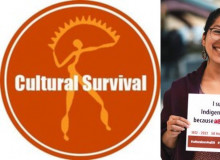Climate Change
Climate change affects all of us and all the systems on planet Earth - from natural disasters to disrupted growing seasons, our changing climate is having widespread effects. Here are some ideas for how to deal with climate change, how to adapt and how to try and cut down on the change while we still can.
Middlebury College
The invasive ice plant can be seen as a metaphor for the components of climate change, from the unbalanced way climate effects different groups to the pervasiveness of the climate crisis in everything we do.
Planet Forward Correspondent | Ithaca College
There are two huge mountain ranges, on two different continents, both of the same name. The similarities don’t end there either. Both are being increasingly affected by climate change.
University of Chicago
Composting is a growing practice that diverts food waste from greenhouse gas-producing landfills; Chicago colleges provide a case study into how this practice can be implemented more broadly today.
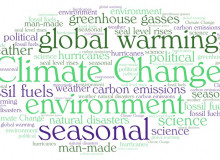
"Climate Change" by www.scootergenius.com (Kevin Smith/Flickr)
George Washington University
From "global warming" to "climate change" to "climate crisis," the terms that we use to refer to the worsening environment have political and social implications.
Planet Forward Correspondent | George Washington University
One biotech startup claims it can use Asian elephants to breed “functional mammoths” that help fight climate change. The prospect of bringing genetic engineering technologies into the world of conservation raises complex moral questions.
Planet Forward Correspondent | Ithaca College
Pinegrove's frontman walked me through his songwriting process and inspiration behind the album. He also gave insight on how he incorporates activism in his daily life and how he copes with the current state of climate change.
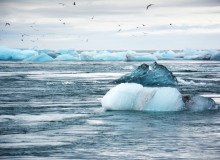
(L.W./Unsplash https://unsplash.com/license)
Northwestern University
Cristobella Durrette reports that data released last week shows that the U.S. is not on track to meet Biden's climate change goals, at the start of a year when his climate agenda will face multiple challenges.

Sunrise in southern Utah. (John Fowler/Unsplash https://unsplash.com/license)
American Conservation Coalition
While I went to Glasgow to represent young conservatives interested in combating climate change, I also learned that this issue requires a new, collective shift in approach from people on all sides and in all sectors.
George Washington University
The work of Indigenous communities goes unrecognized every day. In an interview with Cultural Survival’s Bia’ni Madsa’ Juárez López, we are able to better understand how Indigenous Peoples are making enormous strides in creating a more sustainable... Read More
Planet Forward Correspondent | SUNY Environmental Science and Forestry
In the aftermath of COP26, PF Correspondent Lily John sat down with social-ecological systems and ecological economics researcher Dr. Valerie Luzadis, who attended the summit virtually.

 (1).jpeg%3Fitok=1splj-bf)
 3.15.21 p. m..png%3Fitok=axDDWAHg)
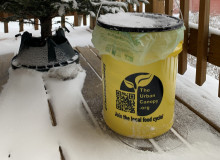
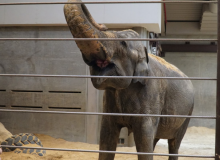
 1.19.32 p. m..jpg%3Fitok=sdpqeIic)
